Profile
Alexander Taylor
Thank you all so much for the fun and interesting questions - I learned a lot and I hope you did too!
Work History
-
Education:
University of Michigan
-
Qualifications:
M.S., Evolutionary Biology (University of Michigan)
-
Work History:
Landscaping and gardening company, Shoe salesman, Manager of the VA Hospital genetics repository, University of Michigan Graduate Student Instructor
-
Current Job:
Ecology and Evolutionary Biology, PhD Candidate and Graduate Student Instructor
-
Employer:
University of Michigan
-
My Work:
I study how certain plants evolved the ability to recognize and partner with bacteria in the soil.
-
Read more
This might seem gross, but right now, there are about 100 trillion bacteria living and growing inside you. They’re in your gut, in your mouth, all over your skin. The good news is that most of these bacteria are actually good for you! They help you digest your food and fight off disease-causing bacteria. And humans aren’t the only ones filled with helpful bacteria; animals and plants have many bacterial partners. I study a particular partnership that some plants, particularly legumes (like beans, peas, and lentils) make with a certain kind of bacteria. These bacteria can make the building blocks of protein out of thin air, and they trade them with the plant in exchange for sugar. This partnership is called “nodulation” because the plants grow their bacterial buddies in organs called “nodules” on their roots. Plants that can nodulate are very important, because they’re one of our main sources of protein, and they fertilize the soil in farm fields. I study how plants evolve the ability to nodulate, by comparing the DNA of plants that can nodulate with the DNA of plants that can’t.
-
My Typical Day:
Working on a supercomputer comparing DNA sequences, infecting plants with bacteria in a greenhouse, teaching classes, listening to other scientists talk about their work.
-
Read more
I’m interested in how plants evolved the ability to nodulate, and why only certain families of plants can do it. So I’m figuring out the genetic differences between plants that can and cannot nodulate. I do this by growing a nodulating plant, autumn olive (Elaeagnus umbellata), and then infecting its roots with their bacterial partners.
Matthaei Botanical Gardens at the University of Michigan, where I grow autumn olive
I collect the roots and run experiments to see which genes are turned on or off while the plant is being infected with the bacteria. Then I compare the DNA sequences of these genes against the genes of other nodulating plants using supercomputers at the University of Michigan.
-
What I'd do with the prize money:
Build an interactive activity for museums, zoos and botanical gardens to show people how important and amazing nodulation is
-
Read more
Many people don’t realize how complex, beautiful and secret the life of plants can be. I love to talk to people about the partnerships that plants make with fungi and bacteria, and how amazing and important these partnerships are. I write about my research on my blog “Thought and Awe,” but my favorite way to talk about it is by showing them in person, at places like the Detroit Zoo and the Ann Arbor Summer Fest. I’d like to make my exhibit even better, so more people can learn about the amazing world of plants!
-
My Interview
-
How would you describe yourself in 3 words?
Creative, Friendly, Curious
What's the best thing you've done in your career?
Climbing mountains in China to collect plant specimens
What or who inspired you to follow your career?
Jurassic Park
What was your favorite subject at school?
History
What did you want to be after you left school?
A brain surgeon
Were you ever in trouble at school?
Who me? Never! Well, maybe once or twice
If you weren't doing this job, what would you choose instead?
A writer
Who is your favorite singer or band?
The Talking Heads
What's your favorite food?
Sushi
What is the most fun thing you've done?
Exploring and snorkeling in caves below Mayan ruins in Mexico
If you had 3 wishes for yourself what would they be? - be honest!
To grow a flourishing vegetable garden, have a happy family, and write a good book
Tell us a joke.
I, for one, like Roman numerals!
-






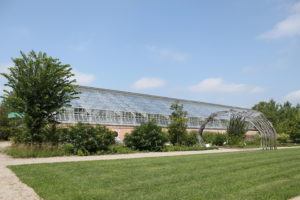
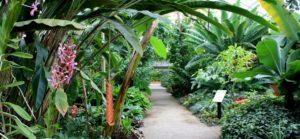
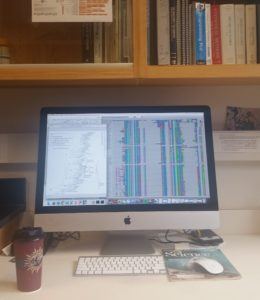

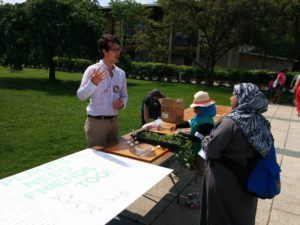
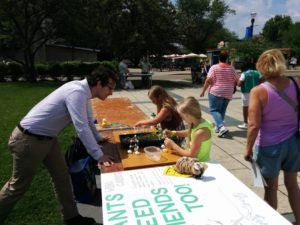
My Comments
Do you make little mazes for mice and rats (1 comments)
Why do you use bacteria to infect plants (1 comments)
What do you like about nature (1 comments)
If you can be an animal what would you be ? (1 comments)